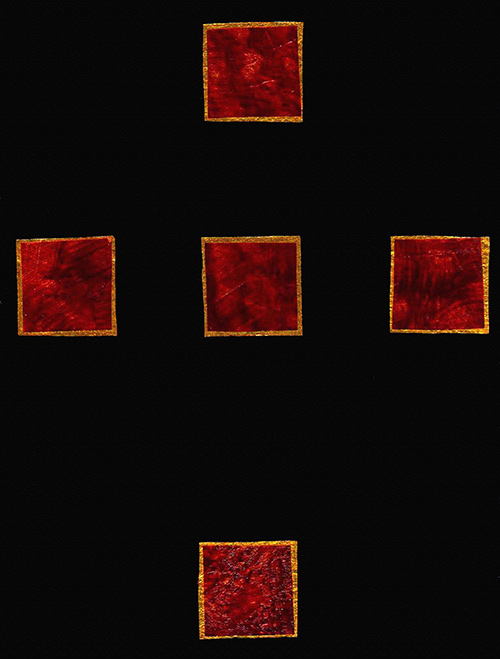 Image: Good Friday © Jan Richardson
Image: Good Friday © Jan Richardson
Reading from the Gospels, Good Friday: John 18.1-19.42
Several years ago, I did a series of charcoal drawings for Peter Storey’s book Listening at Golgotha, in which he reflects on Jesus’ Seven Last Words from the cross. (View the series here.) Peter is a retired bishop and active leader of the Methodist Church of Southern Africa, and his experiences of working for justice and reconciliation in his home country profoundly shape his understanding of Jesus’ crucifixion and resurrection. In Peter’s reflection on Jesus’ third word, “Woman, here is your son…. Here is your mother,” he observes that in giving his mother and his beloved friend John to one another, Jesus “created a community that was to become family to the widow, the orphan, the outcast, and the stranger.” Peter writes of our call to such a community as a “sacred trust,” and he asks, “If we accept, can anybody suffer hunger, homelessness, or need? Would there be any lonely old people? Could there be a single unwanted child? If Jesus has made everyone kin to me, would that not make every war in history a civil war and every casualty a death in my family?”
Peter goes on to write, “From the cross where he is nailed, Jesus nails us to each other.”
The first time I read this sentence, sitting at my drafting table as I contemplated Peter’s manuscript, I cringed. I wanted some other word there besides nailed. I wanted Peter to say that Jesus binds us to each other, or joins us to each other, or some other image less graphic and bloody.
As I continued to sit with the image, I began to realize—Well, yeah, Peter’s right. In our loving, in our call and struggle to be community, we get nailed.
I have listened to the stories of women and men who lived with abuse; I have—like all of us—been drenched with images of terrorism and warfare; I have seen the ways that some people participate in their own wounding because they don’t know how to live otherwise, or because they believe that suffering, by its own nature, is somehow redemptive and should be sought out. Everything I know about the love of God causes me to resist the idea that Christ desires our suffering and that he would perpetuate this culture of violence by willfully inflicting pain upon us.
What Peter claims here, however, is not that Christ desires or wills our wounding. Rather, Peter recognizes and names what happens when we try to be family to one another. Christ doesn’t call us to seek out pain. Pain is not the goal. It does, however, seem to be an inextricable part of loving. When it comes to love, there’s no need to seek out suffering. In the risk of exposing ourselves and opening ourselves to one another, the wounds will open of their own accord.
We call the crucifixion of Jesus the passion, and so it is, for us as well as for him. Each time we stretch out our arms in love to one another, every time we open our hearts, we find the shadow of the cross, but also a glimpse of the open tomb. We are nailed indeed. It is our keenest grief, and our deepest joy.
Pierce, break, tear, rend, nail: the older I get, the longer and more deeply I love, the more I see how the words I used to avoid are part of the vocabulary of the community to which Christ calls us. It is part of the language of hearts that seek to live in relationship with one another, with all the risks and losses and joys that come in loving. Jesus’ final word from the cross, “Into your hands I commend my spirit,” reminds us that every relationship will, at some point, contain a good-bye.
Yet we who know the rest of the story, we who have glimpsed the other side of Good Friday, know that Jesus’ last word from the cross isn’t the final word. There are more words to come, crucial words that Christ will yet add to our vocabulary, our story, our community.
For now, we wait. Together. Nailed to one another.
What words are you noticing, hearing, speaking this day? What is the vocabulary you use to describe your experience of community and of loving?
Blessings to you as we approach Good Friday.
[To use the image “Good Friday,” please visit this page at janrichardsonimages.com. Your use of janrichardsonimages.com helps make the ministry of The Painted Prayerbook possible. Thank you!]

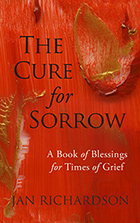
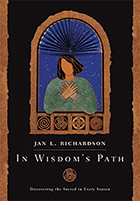
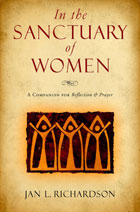
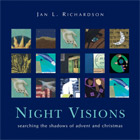
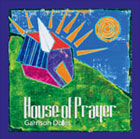
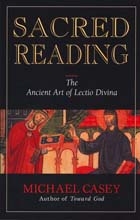
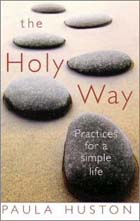
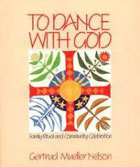
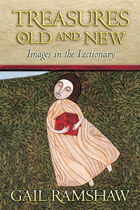
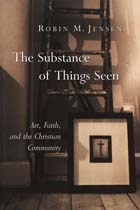
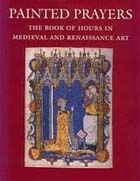
March 21, 2008 at 10:46 PM |
and blessings to you also. Thank you for this post.
March 22, 2008 at 1:39 PM |
The word that comes to my mind immediately is “claimed.” We are claimed by Christ, just as we acclaim him, and we claim each other as well.
April 22, 2011 at 4:35 PM |
Dear Jan and Gary,
I am feeling so deeply connected to the Holy Spirit today, and I am so grateful for your words and images and song that have all “nailed” me to God’s community (For some folks such as I tend to be, it takes an experience of being “nailed”) and to the journey that Jesus is taking: I imagine him standing before the cross, feet spread on the stone-hard ground. I see him peel away his sweat-stained, blood-soaked clothes and watch him lie down–unclothed, unbound–because I think it take his kind of lying down, unclothing himself, becoming unbound to be fully crucified. Thank you, Thank you, Jan and Gary! Blessings to you!
April 6, 2012 at 5:57 PM |
Thank you. Very interesting and deep food for thought.
March 28, 2013 at 3:23 PM |
Beautiful. You wrote just what I have been reaching for for a long time. Thank you!
March 30, 2018 at 8:14 AM |
Reading this on Good Friday challenges me and makes me sad, because I can no longer bear the pain of trying to be in the church “community”. I’d love to be going to a service today and Sunday, to be part of the communal Easter journey, but my face never fits. Too many conditions have to be met for acceptance in the average church, and as an independently-minded, older single woman, I definitely don’t meet them!
April 14, 2019 at 2:54 AM |
I am so excited to hear these words. And yet I know they are true for you. The other day I was listening to a talk which included the observation that Jesus did not fit. That He had confine His Godliness to a human body. He knows what it is like to ‘not fit’. Find that church family. Nail yourself to them. God bless you, Anne.